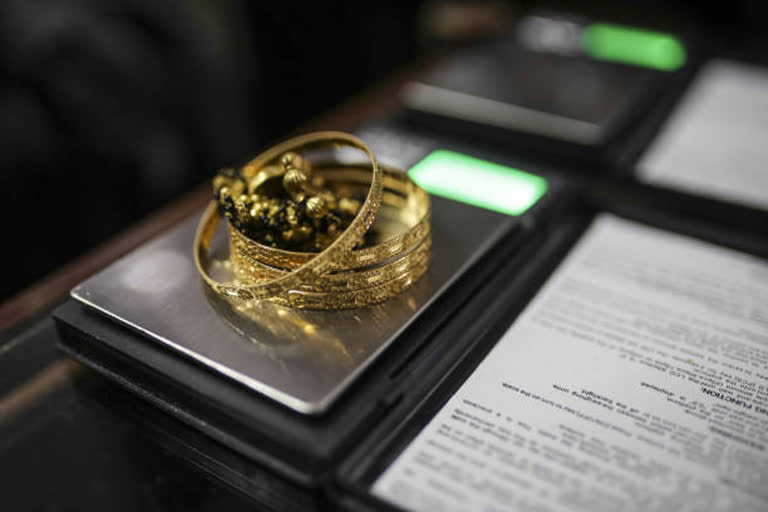Hyderabad: The recent spike in gold prices have brought gold loans back in favour across India. Citizens of the gold-loving nation seem to be putting their yellow metal to good use to ease the cash crunch they are facing, due to limited incomes and struggling businesses during these times of COVID-19 pandemic.
Days after MCX gold hit a record high in early July nearing Rs 50,000 per 10 gm mark, managing director of leading gold mortgage firm Muthoot Finance, George Alexander Muthoot, said the company’s gold loan business has returned to normal amid the pandemic. His claim was backed by the need of working capital by small businesses and shops.
Usually, when individuals need money at a short notice, say from anywhere between Rs 10,000 to Rs 20 lakh, they prefer to opt for either gold loans or personal loans. Both have certain advantages and disadvantages and one should choose depending on specific needs and viability. But, certain features of gold loans make it look a bit more attractive to borrowers than personal loans.
What is a gold loan?
Gold loan is essentially a secured loan in which a customer pledges his/her gold ornaments as collateral with a bank or a gold finance company. The company gives a loan amount as per the purity and the market value of gold. The loan amount is usually 60-75 percent of the appraised gold value. The recent rally in gold prices has, therefore, enabled individuals to raise more money for the same quantity of gold they held earlier.
Leading banks charge interest rates in the range of 7.5 percent – 25 percent on loan against gold depending on the amount of loan raised, usually for a tenure of one year. Repayment options are quite flexible – either through EMIs (equated monthly installment), or one-time bullet repayment among the popular ones.
Read more:Gold hits fresh high, nears Rs 50,000/10 gm; silver at record Rs 60,000 per kg
Since it is a secured loan for the bank, which means that the lender can liquidate the underlying asset to recover the money in case the borrower fails to repay the loan, the disbursal process is swift and easy. The finance firms don’t ask for a borrower’s credit history and there are flexible repayment options.
What is a personal loan?
A personal loan is an unsecured loan taken by individuals from a bank or a non-banking finance company (NBFC) to meet personal needs. The amount, which one can borrow, largely depends on his/her income level, credit history, employment status and previous loans.
Personal loans come with a longer tenure of 1-3 years, with varying interest rates starting from about 10 percent. But, the borrowers can be asked to arrange for guarantors and a lot of paperwork needs to be put in place to ascertain the borrower’s profile. This makes the disbursal process much longer than that of gold loans. Repayment of these loans is mostly in the form of EMIs.
So, which is better?
Not just quicker, gold loans are relatively cheaper to execute as processing charges normally stand at around 1 percent of the sanctioned amount compared with 2-3 percent fees paid for a personal loan.
Also, in case one wants to prepay the gold loan fully or partially, most gold finance companies offer that option without any prepayment penalty, while some other banks charge up to 1 percent. For personal loans, usual prepayment charges are around 2-3 percent of the sanctioned amount.
But, the most obvious disadvantage of a gold loan is, one needs to own the gold in physical form to avail the loan unlike a personal loan where one does not need to pledge any collateral. The amount of loan can also be limited as it depends on the value of gold in possession. Also, there is an additional risk of losing one's existing wealth if the person defaults on the gold loan in case of a financial setback.
So, between a gold loan and a personal loan, one should choose prudently.
(ETV Bharat Report)



